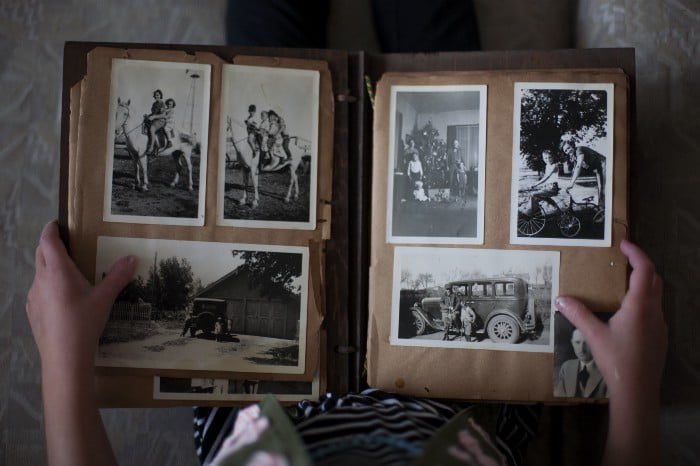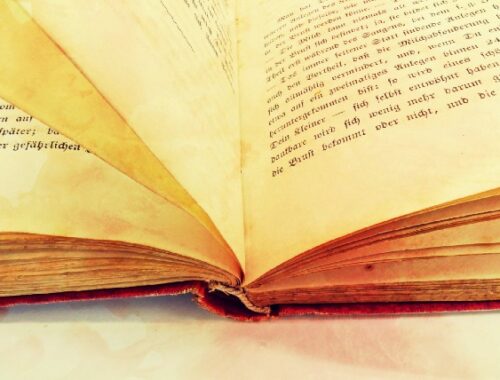
The Art of the Flashback
Flashbacks in your story can be useless, or they can be an incredible way to add characterization or further your plot. The choice is up to you.
Do you know something that bothers me when I am reading a novel? Useless flashbacks. Recently I was reading a story where the main character had a flashback. While the memory was compelling and easy to follow, it didn’t serve any purpose in the scene. You might be thinking “well, it probably was important to something later on in the book.” I have since finished the book, and it did not, in fact, serve a purpose later in the book either. It really had no point in the book. There wasn’t an important tidbit of information from the flashback that came up again in a later chapter, and there wasn’t an important fact about the main character that helped me understand her better. It was just…there. Suddenly she was remembering a childhood event, but that was all.
This experience reading a bit of flashback got me thinking — what makes the difference between a valuable flashback and a useless one? Using flashbacks in your writing is truly an art. It takes skill, thought, and effort to use flashbacks well. We all get too used to seeing flashbacks in our favorite superhero movies or reading through flashbacks in our favorite books that we forget this. Just because the literary device of the flashback is used often does not mean it’s used well. There’s a difference between a necessary flashback and an unnecessary flashback. If you are in the middle of writing your story and about to bring your character into a flashback, here are four things you should consider to help decipher if a flashback will be helpful in furthering your book or if it’s an unnecessary addition:
1. Will a flashback help further characterization?
One of the things a flashback can do really well is further help a reader understand your main character. I’ve written before about character motivation, and flashbacks can be an excellent way to explore your character’s motivation (even if the flashback never even ends up in your finished draft!) We as human beings are made up of all our experiences, good and bad, and flashbacks help you, as a writer, explore your main character’s experiences.
Something that most literary agents and/or publishers will want to know from you even before they read the book is what’s at stake for your protagonist. They want to know why your character cares about what happens in your book, and consequently why they should care. It was one of the questions asked of me when I pitched to a literary agent earlier this year — she asked me to explain why my main character becomes so attached to the town in the book. The answer for my protagonist has to do with her past — she finds something she was missing in said town— and I could both articulate that to the agent when the question came up, and, because of some well-placed flashbacks in the book, that will come across as she reads the manuscript, too!
2. Will a flashback help further the plot?
Another thing a flashback can do is help to further the plot of your book. While every scene in your book needs to serve a purpose — that’s a given, and you shouldn’t ever have an extra scene in your book just for kicks and giggles — sometimes that purpose can simply be to move the plot forward. Flashbacks can work in a similar fashion. Sometimes in order to move the action along, you need to look back. It’s how all of our brains work at least some of the time — we connect our current experiences or even dilemmas to things that have happened in the past. Think of your character and your plot in this way, too. If you’re writing a particularly high-intensity scene, sometimes a flashback to a simpler time can be a good transition to the next part of the plot. Sometimes when humans are stressed they revert back to old habits or play old memories over and over again to calm themselves down. Your character can do this which will both enhance their characterization and move the plot forward — a win-win situation, if you will.
3. Will the flashback provide information that is important later?
Sometimes a character needs to remember an event in her childhood so that when something important comes up later in the book, she’ll have just been thinking through a helpful scenario that she didn’t even realize would be helpful later on. This is a reason for using a flashback that you have to be careful with — it can be all too obvious for the main character of your book to remember a fun road trip with her family while she was in grade school and then need to recall the exact street her family was driving down all those years ago so she can follow a criminal and solve the crime — but it can be an amazing tool, nonetheless.
One way to help this type of flashback not come across as too obvious is to have your character’s memory focus on one thing, whereas the important information in the flashback is another aspect entirely. Sometimes it even makes sense for a memory to hold a clue for the reader but not ultimately for your protagonist. You do have to write with your reader ultimately in mind, after all.
4. Will the flashback provide information that cannot be provided any other way?
This is the most key thing to think about before writing a flashback, in my opinion. Is there another literary vehicle that could get the same thing across in a more natural way? Oftentimes we want to get too complicated with our writing and use flowery language or complex literary devices to get a point across that could just as efficiently be stated directly. Do you need to have your character remember something from her childhood in order to solve her dilemma, or could she just ask her mom who is standing right next to her and knows the answer, too? These are the types of questions you need to ask yourself.
For my character, flashbacks were often necessary because they were involving people who were no longer alive. My book is a romance novel, not a paranormal mystery, so ghosts showing up wouldn’t have really fit with the overall plot and setting. But a memory triggered by another character’s tone of voice that would further develop my main character’s motivation? That would do the trick.
Flashbacks, like any literary device, can be a valuable tool to stash in your writer’s toolbox. They can just as easily become a crutch that neither helps nor harms your writing if you’re not careful. Most books can handle a flashback or two, but it’s a good idea to ask yourself a few questions before spending time and effort writing one into your own work. If you think thoughtfully about your use of the flashback, you’ll become a better writer for it and utilize flashbacks in a way that help your reader get into your story rather than leaving them wondering why you included that memory in the book in the first place.





